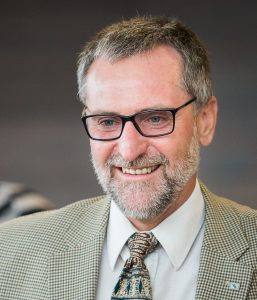Dr. Danny P. Goel
Transforming Global Medical Education with Spatial Computing: A New Era of Technology in Healthcare
 Dr. Goel currently practices in Vancouver, B.C. and is a Clinical Professor in the Department of Orthopedic Surgery. He received his medical degree from the University of Manitoba, pursued his residency training in orthopedic surgery at the University of Calgary, and completed fellowship training in shoulder surgery at Western and Harvard University. Dr. Goel has co-authored more than 50 publications and is widely sought as a presenter on surgical techniques, simulation and the intersection of technology in healthcare. His interest in education has led to his role as the CEO and founder of PrecisionOS, a global medical education provider using XR for healthcare professionals. This software is currently being used in over 60 countries around the world.
Dr. Goel currently practices in Vancouver, B.C. and is a Clinical Professor in the Department of Orthopedic Surgery. He received his medical degree from the University of Manitoba, pursued his residency training in orthopedic surgery at the University of Calgary, and completed fellowship training in shoulder surgery at Western and Harvard University. Dr. Goel has co-authored more than 50 publications and is widely sought as a presenter on surgical techniques, simulation and the intersection of technology in healthcare. His interest in education has led to his role as the CEO and founder of PrecisionOS, a global medical education provider using XR for healthcare professionals. This software is currently being used in over 60 countries around the world.
Abstract: Medical education is limited around the world where current models of simulation are either inaccessible or require significant expense to utilize. This presentation will highlight the current challenges healthcare providers face and the care they can provide for their patients. Through accessible models of simulation, the implications for patients and the economic implications of standardized care through on demand education and mentorship will be highlighted.
Dr. Gabor Fichtinger
Point-of-care-ultrasound guided therapies and interventions in the global health context
 Gabor Fichtinger received his doctoral degree in computer science from the Technical University of Budapest, Budapest, Hungary, in 1990. He is a Professor and Canada Research Chair in Computer-Integrated Surgery at Queen’s University, Canada, where he directs the Percutaneous Surgery Laboratory. His research and teaching specialize in computational imaging and guidance of interventions and surgeries, focusing on the diagnosis and therapy of cancer and musculoskeletal conditions. His work has been cited over 15,900 times, with a h-index of 64. Prof. Fichtinger is an Associate Editor for IEEE Transactions on Biomedical Engineering and Elsevier’s Medical Image Analysis, Deputy Editor for the International Journal of Computer Assisted Surgery Radiology. He has served on the boards of the International Society of Medical Image Computing and Computer Assisted Surgery (MICCAI) and the International Society of Computer Assisted Surgery (ISCAS). Prof. Fichtinger received many honours, including the Tier-1 Canada Research Chair, Cancer Care Ontario Research Chair, Royal Society of Canada Fellow, IEEE Fellow, AIMBE Fellow, MICCAI Fellow, Marie Curie Fellow, and IEEE Distinguished Lecturer.
Gabor Fichtinger received his doctoral degree in computer science from the Technical University of Budapest, Budapest, Hungary, in 1990. He is a Professor and Canada Research Chair in Computer-Integrated Surgery at Queen’s University, Canada, where he directs the Percutaneous Surgery Laboratory. His research and teaching specialize in computational imaging and guidance of interventions and surgeries, focusing on the diagnosis and therapy of cancer and musculoskeletal conditions. His work has been cited over 15,900 times, with a h-index of 64. Prof. Fichtinger is an Associate Editor for IEEE Transactions on Biomedical Engineering and Elsevier’s Medical Image Analysis, Deputy Editor for the International Journal of Computer Assisted Surgery Radiology. He has served on the boards of the International Society of Medical Image Computing and Computer Assisted Surgery (MICCAI) and the International Society of Computer Assisted Surgery (ISCAS). Prof. Fichtinger received many honours, including the Tier-1 Canada Research Chair, Cancer Care Ontario Research Chair, Royal Society of Canada Fellow, IEEE Fellow, AIMBE Fellow, MICCAI Fellow, Marie Curie Fellow, and IEEE Distinguished Lecturer.
Abstract: Point-of-care-ultrasound guided therapies and interventions, shortly POCUS-IGT, enables treatment at the bedside, whether in an urban hospital, rural clinic, or mobile care unit. The potential use of POCUS-IGT in interventions like injections, biopsies, drainages, ablations and surgeries is virtually unlimited. As such, POCUS-IGT can transcend geographic and socio-economic boundaries and thus bring closer the ideal of democratization of access to healthcare. In the global context, sustainable development of POCUS-IGT programs is dependent on the availability of free open-source software platforms, as the mean of rapid knowledge and technology translation. This talk will discuss the role of the 3D Slicer (www.slicer.org) and SlicerIGT (www.SlicerIGT.org) free open-source software ecosystems in the development of POCUS-IGT solutions and their global deployment though the Train the Trainer Program, an alliance between the University of Las Palmas de Gran Canaria, Harvard Medical School and Queen’s University, working with clinical leaders, governments, and international organization toward establishing national POCUS-IGT programs in West Africa, particularly in Mauritania and Senegal.
